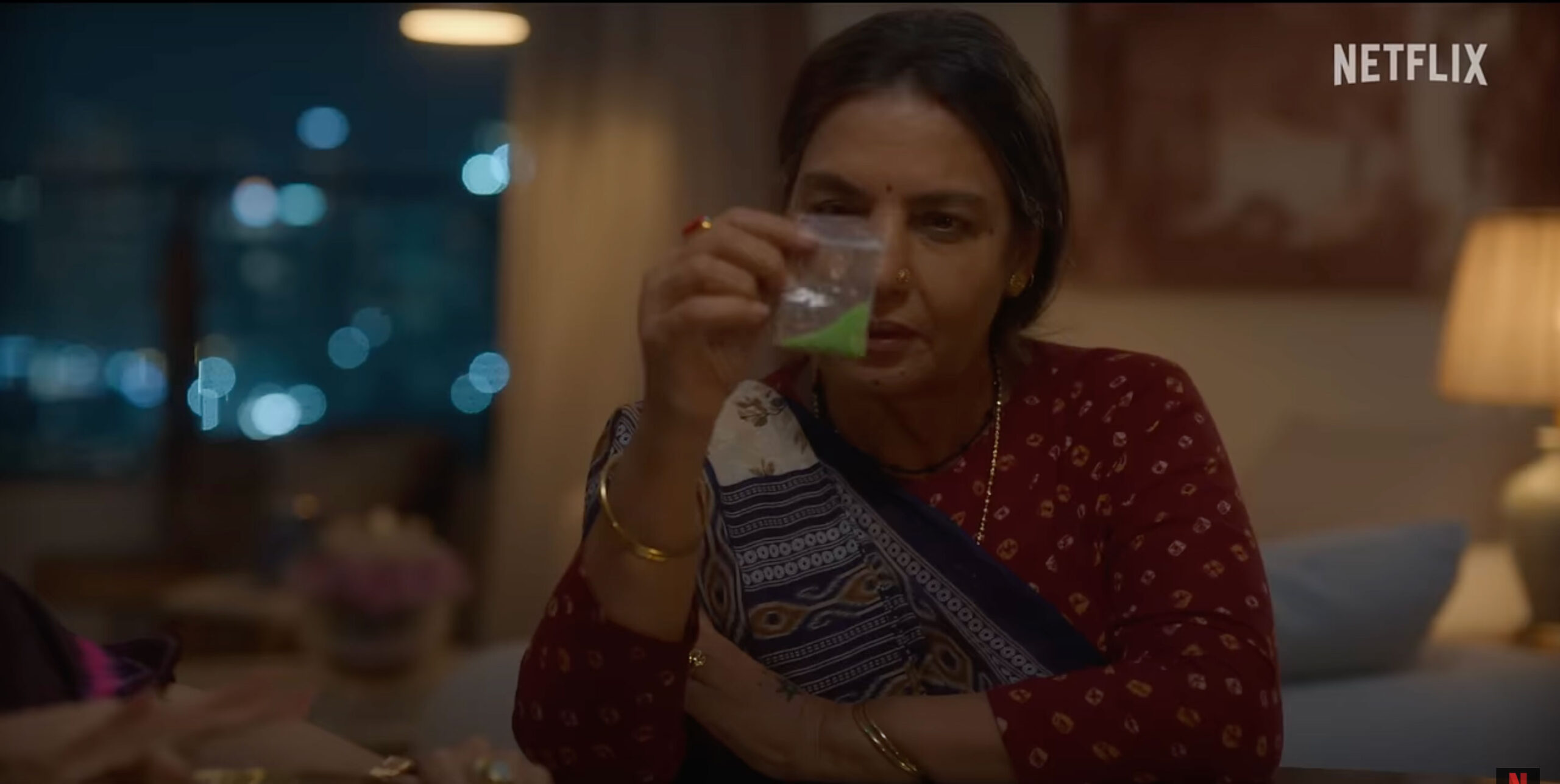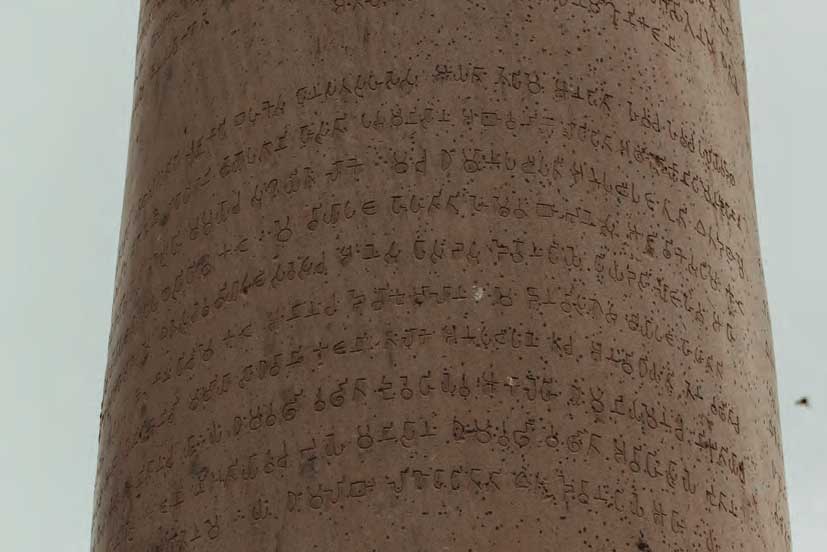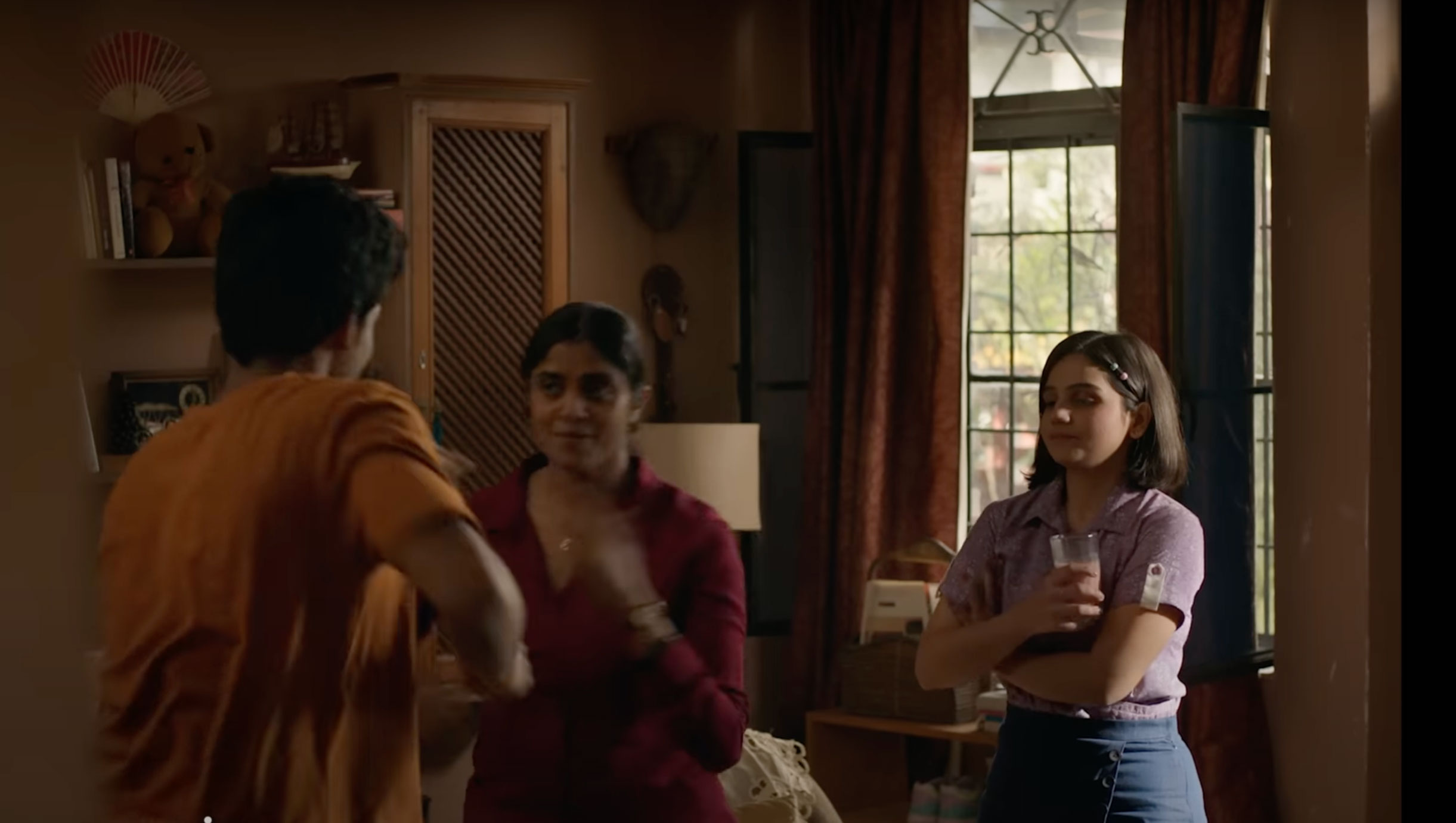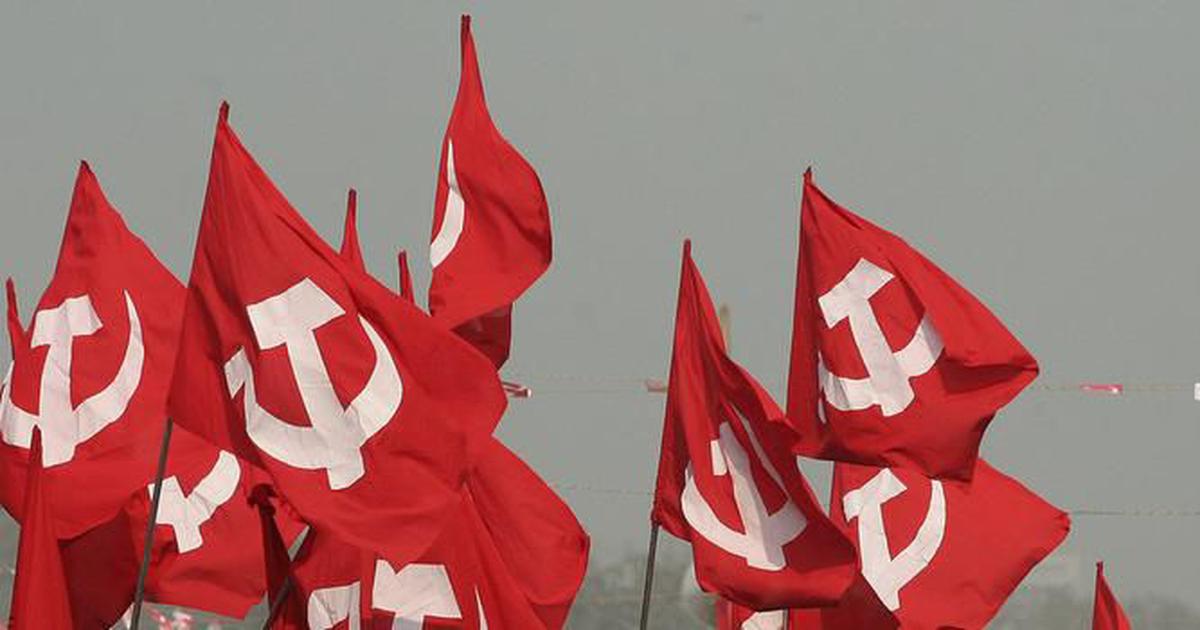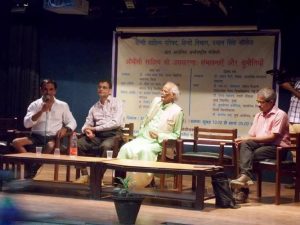
A daylong international seminar, divided into two sessions, on “The Concept of OBC Literature: Possibilities and Challenges” was held at Dayal Singh College, Delhi University, on 30 August. Well-known linguist Rajendra Prasad Singh chaired the seminar. Among the participants were Prof Chauthiram Yadav (chief guest), writer and critic Dr Prahlad Ramsharan from Mauritius (special guest), journalist Dilip Mandal, political scientist Prof S.N. Malakar of JNU, sociologist Shrawan Deore, critic Dr Kamlesh Verma, Marathi writer Prof Vandana Mahajan and social thinker Prof Dr Ram Kanaujia.
Introducing the topic, Dr Kedar Kumar Mandal, the convener, underlined the need for OBC literature while adding that Dalit and Tribal literatures and Dalit and Tribal discourses are important. “It’s high time we launched OBC literature and discourse,” he said. “Initially, we had considered a Bahujan discourse but we were not sure whether our Dalit and Tribal friends would join us. As this discourse moves forward, we will feel the need for a Bahujan discourse and in the times to come, we will encourage it.”
As part of a conspiracy, Hindi litterateurs and critics did not treat the writings of OBC litterateurs as literature. At the same time, Dalit literature has not accepted OBC literature and litterateurs into its fold. Consequently, OBC litterateurs are finding themselves ignored. OBCs form around 60 per cent of India’s population and if they did not find representation in criticism and literature, if their pains and travails were not given expression, how long could they have tolerated it? They were bound to revolt. The OBC castes are toilers and they have their own culture, history and literature. We only need to dig them out. We are hopeful that like Dalit and Tribal discourse, OBC discourse too will get its due place in the times to come. Let us see what the different speakers said:
Dr Prahlad Ramsharan, a writer and critic from Mauritius, presented an overview of the social fabric of Mauritius. He said, “Initially, all the people of Indian origin in Mauritius were one and there were no caste divisions among them. But when Brahmins started arriving in the country in the beginning of the 20th century, the division between forward and backward classes appeared. There are no Dalits or Tribals there and no one talks about Dalit literature there. Hindi literature made its advent in Mauritius in 1970 and is still in its infancy. There is no casteism in literature in this country but a certain class has monopoly over it.”
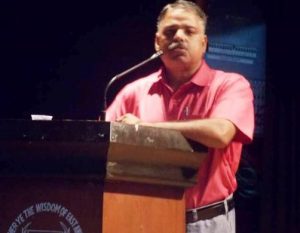
Kamlesh Verma: “Caste is a reality in India. When caste-based identities are alive and exploitation continues, why should caste-based discourse perturb Hindi writers? The OBC society has its own challenges and OBC literature can help overcome them. Dr Dharamveer says that even if a Dalit embraces Buddhism or becomes a Christian, his Dalit identity persists. When the original identity of a person simply cannot be obliterated in our society, what is the problem in having a literature based on that identity? The main objective of OBC literature is to end exploitation. How can trying to free oneself from injustice be wrong? But the OBC litterateurs should ensure that while they might have faced casteist discrimination, they themselves should not discriminate against anyone on the basis of caste.”
Tulsiram Kanaujia: “Politics and literature are inter-connected – they should be. OBC literature should not dissociate itself from politics. It should try to unite the various OBC castes. OBC literature can be divided into two broad categories: the writings – whatever they might be – of all OBC writers and those about the life experiences, feelings and problems of the OBCs written by members of other communities.”
Prof S.N. Malakar: “OBC literature has yet to develop into an independent literary genre but does have a wide canvas. We would have to start looking for it from the Buddhist era onwards. Seventy-five important Buddhist nuns belonged to today’s OBC – as defined in the Constitution. The writings of many of them are valuable. When we will look for OBC literature in history, we will find that it has a huge canvas. The OBC community believes in Shraman culture. The OBC literature’s potential springs from it being a part of Shramanic culture – the culture of the toiling castes. But the term “OBC literature” is not as endearing as the term “literature of the Backwards” is. The latter evokes as much sensitivity as Dalit literature. The Constitutional definition of OBCs also limits us. That is why literature of the Backwards would be a more apt nomenclature.”
Prof Shrawan Deore: “We opened the “grand gate of OBC literature” in Pune in 2005. The following year, we organized the first All-India OBC Literary Convention in Pune to bring OBC litterateurs on one platform. Since then, there has been a flood of OBC literature in Maharashtra. You can see the results. The Jnanpith Award – considered the highest national award in the field of literature – has gone to OBC writers in the past two years. Bhalchandra Nemade, who won the award for 2015, and Raghuveer Chaudhari from Gujarat, who was the awardee in 2015, are both OBCs. This is the outcome of the OBC literature movement. Phuleism will be the base and the philosophy of OBC literature. When we organized the OBC literary convention 10 years ago, we never imagined that Delhi would be hosting the OBC literary convention so soon.”

Chauthiram Yadav: “I find the idea of OBC literature far-fetched. But it is a new thing; it is welcome. I know of no concept of Bahujan Literature. First, tell me what the concept is and then we can talk about it. First talk about the OBCs, about the OBC society. Only when there is a discourse on a community, when an ideology develops, only then can a literature evolve. Merely looking from the caste angle won’t work. Dalit literature has at its core opposition to casteism, opposition to Brahmanism and its basic agenda is writing about what one has experienced. What is your main agenda? And don’t say that there were many OBCs among the Siddhs and the Naths. Don’t say that Jaishankar Prasad and Maithlisharan Gupt were OBCs; don’t come up with a list of castes. This won’t work. Now, even Kabir’s caste is being probed. But the movement of social resistance that Kabir had launched 600 years ago was taken up by all subsequent progressive societies. Kabir spoke for the man who is being persecuted, for the man who is a victim. Hindi literature has always been the literature of opposition. It has consistently fought against the dominant powers. From where will the inspiration for OBC literature come? From where will its ideology come? If there is going to be an ideology, it will be the ideology of Phule and Ambedkar, of Buddha and Kabir. It will be the ideology of Dalit literature, of Tribal literature, of OBC literature. If Hindu religion is alive, if Brahmanism is alive, the OBCs are responsible for it. First, let the OBCs gather strength. In Tamil Nadu, there is 69 per cent reservation and you are stuck at 27 per cent. First let us build an OBC movement. The OBCs have always been slaves to power, unpaid slaves. Let them first free themselves from slavery and then hold discourses and write literature. Only caste cannot be the basis of OBC literature. Who are the people who took Dalit thought forward? They were OBCs. Learn something from them. Periyar, Narayan Guru, Shahuji Maharaj, Jotiba Phule, Savitribai Phule, Ambedkar and Kabir – there is a long list. We have a long tradition of resistance. My personal opinion is that no ideology of OBC literature or of Dalit literature can be built without Buddha, Kabir, Phule and Ambedkar. If this is the case and Dalit literature already has an ideology, where is the need for OBC literature? I have no concept of OBC literature. But one should never rule out any possibility. Possibilities, potential have great power. They can propel us forward. Presently, we do not have a concept of OBC literature. First develop its concept, its ideology. History cannot make literature.”
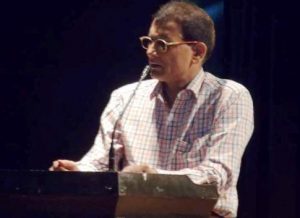
Rajendra Prasad Singh: “What is the wisdom, the knowledge we possess? Most of it is second-hand. Most of it is not true. The books of wisdom that we have were written by the so-called upper castes. The window of knowledge, of literature from which you and I are peeping – that window is showing us only that part of the world of knowledge that they want to show us. We are thinking and understanding what they want us to think and understand. We are not able to see the entire world of knowledge from this window. For that, you will have to jump out of the window; you will have to break it. When you will jump out of the window, you will know how developed the outside world is. We will have to look afresh at our history, our philosophy, the history of Hindi literature. Our literature thus far is fluid, it is based on emotions, on unreal words. By unreal words I mean those that refer to things that don’t exist. When we talk of OBC literature, we talk of solid, constitutional literature, of science. We are not talking of “Chayavaad” (romanticism), which can neither be seen, nor touched, nor experienced. What kind of literature is this? What is the state of “Chayavaad” in Hindi literature and in this country, where Hindi is spoken in 10 states? What is that history? Who are its historians? What is that history that says there are only four Chayavaadi poets – Prasad, Pant, Nirala and Mahadevi Verma? All of them are from Uttar Pradesh. So, are you writing the history of Uttar Pradesh only? Who said only these four were the Chayavaadi poets? We did not say it. You should ask who said this, where, when and how. You will be able to understand the psychology – under what compulsions did that poor man say it? It was the creation of Nanddulare Vajpayee, an unemployed boy with a PhD. You will have to examine these claims. That is why we have started talking about OBC literature, which is a Constitutional term and opposing OBC literature is opposing the Constitution, it is treason, it is anti-national. There are OBC commissions in the country, there are OBC hostels, then why this displeasure with OBC literature? Hindi literature is full of falsehood, it is spreading falsehood, yet when we talk of OBC literature, you say we what we are doing is wrong. I’d say that the history of Hindi literature is a case of stealing caste. If you still believe that Kabir was a Brahmin, then you should read the entire literature of Kabir. Let anyone say it if they have found that Kabir has quoted a Brahmin poet anywhere, that he has taken the name of a Brahmin poet anywhere. Kabir was a much more vigilant person that you and me. You do take the names of Brahmin writers; I do not even take their names. If Kabir has taken the name of any poet, it is of a darzi (tailor). Whom has Kabir made gods? Kumhars, Gops, Mahtos and Julahas. Not even once – even by mistake – did Kabir make a Brahmin or a Kshatriya, a god. Everyone has his own symbols, his own myths. If people say that the concept of OBC literature is new and that OBCs got Constitutional recognition in 1990, I want to ask, did gravitational pull not exist before Newton discovered it? You should understand that OBCs have not begun living in this country today. Even before the Mandal Commission, OBCs did exist. The residents of the Indus Valley Civilization were animal rearers, farmers. The frame you are talking about, the frame of Dalit literature – Dalits do not have land. The problems related to land have no place in Dalit literature, they will never have, and it is not their problem. The problems of animal rearing will never come within the Dalit frame, neither will the problems of artisans, ironsmiths or carpenters. Those who own big chunks of land do not do farming. The upper-caste people have land, but they do not do farming. Those who both have land and do farming are the OBCs. That is why the problems of agriculture find mention in the literature of Kabir, and in the literature of Phule. At one time, Phule raised the problems of farming with gusto. So, Dalits won’t raise the problems of farmers, OBC literature will.”
Dilip Mandal: “OBC literature was not much talked about in north India. I probably think that for the first time we are discussing whether there is something called OBC literature and what are its potentials. I want to see it from two standpoints. The issue of OBC literature will generate a lot of heat, a lot of conspiracy. You must have anticipated this earlier. When the concept of Dalit literature emerged in Maharashtra, it was widely criticized, it was flayed – especially because it began with autobiographical accounts. Dalit literature, for the first time, brought centre stage the life of the castes designated “low”. Dalit literature started placing before the people the bitter realities of their life and what they had undergone. It also started telling what kind of work the Dalits were being forced to do, how they were abused. It soon developed its own ideology. If you will go back in time a little, you will realize that Dalits had a clear ideology from the time of Ambedkar. There were no doubts about what constitutes Dalit literature. What Dalit writers told about their life, about their experiences – that was Dalit literature. This was its ideology. The same was true of Tribal literature. Not much effort was needed to define them. In Hindi literature, in Indian literature, there was a separate space for Dalit and Tribal literature. In Delhi itself we can see at least three Dalit literary organizations are at loggerheads. But the space has been created and the Dalit literature has taken an institutional form. Tribal literature has also become institutionalized and its presence is so strong that Tribals even organize their own book fairs. In Tribal book fests, discussions are held on Tribal literature. There are some problems in what we have been calling Indian literature or Hindi literature or literatures of different languages. But I think a space is developing there too. The mainstream literature, from the angle of criticism methodology or analysis, is being guided from the brahmanical standpoint. If Dalit and Tribal literatures have pitched their separate tents, the question is why 52 to 60 per cent (according to different sources) of this country’s population should not have space for their voice in the mainstream literature, especially in the fields of review and analysis. If they are not getting space, there should be discussion on it. Kedar Prasad Mandal talked of the concept of Bahujan literature. I think there is a problem here. If we don’t build OBC literature, as distinct from Dalit Literature and Tribal Literature, then there can be no Bahujan Literature. If we do that, then there will be a mainstream literature, there will be Dalit Literature and there will be Tribal Literature and if a joint convention of Dalit, Tribal and OBC literatures is held, it will be known as a Bahujan literary convention. Bahujan literature will remain incomplete without OBC literature. OBC literature is seeking a separate space. I don’t know how strong this demand is but for the first time in Delhi we are talking about whether there is a possibility of OBC literature. There is long row of thinkers and great personalities in the Bahujan space. It extends from Narayan Guru and Periyar to the present. In north India, BAMCEF and Kanshi Ram introduced them. There was a time when they were local and regional icons, but from the 1980s, they started acquiring an all-India character. The OBC heroes now have an all-India presence. This has happened in society, in politics but can the same be said about literature? Are we talking about OBC icons in literature, about the OBC identity? While reading Renu’s literature, have we wondered how he was able to write about farmers? Because he was an OBC or because he belonged to a farmer caste? When these questions are answered, then OBC literature will begin flowing. Today, we are talking about all this. I am told that preparations for an OBC literary convention are on in Maharashtra. They are talking about OBC literature in Karnataka. Today, OBC literature does not have much recognition. But there are 500-plus magazines of OBC castes. So there is potential, there is space and we are talking about it. Will there be a convention of the editors of OBC magazines? Will these castes start raising the problems of other OBC castes in their magazines? Will there be a convention of editors of OBC, Dalit and Tribal magazines? Will they raise the problems of Bahujans? Will we start talking about how to make India more democratic?”
Vandana Mahajan: “OBC literature can move forward and the building of Bahujan literature can begin only by imbibing the thoughts of Buddha, Ambedkar and Phule. Only OBC literature can develop the consciousness of OBC society.”


